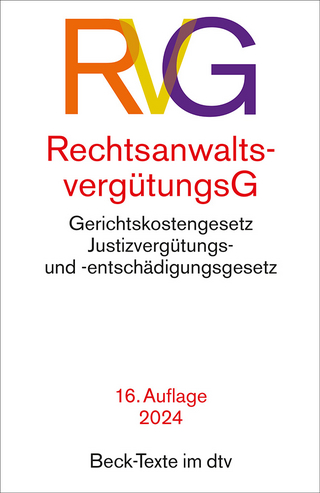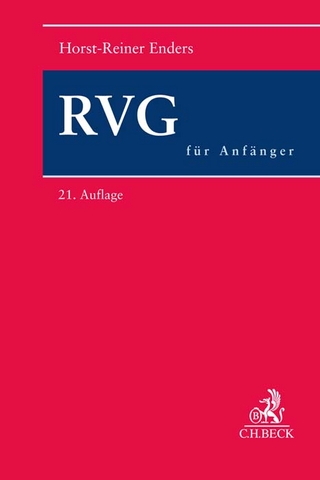
Security Ethics
Routledge (Verlag)
978-1-4724-3943-7 (ISBN)
- Titel z.Zt. nicht lieferbar
- Versandkostenfrei innerhalb Deutschlands
- Auch auf Rechnung
- Verfügbarkeit in der Filiale vor Ort prüfen
- Artikel merken
Governments often act in the name of security to protect their citizenries. For example by legislation or by the recruitment and employment of large numbers of armed personnel to detect and prosecute violent crime, or via engagements in military interventions to repel or pre-empt foreign attacks. These practices are often taken to have strong moral justifications. The value of security is linked to the value of life and the disvalue of violence and injury, and all of these are central both to theoretical accounts of and common sense views about the difference between right and wrong. The essays in this volume seek to increase our understanding of state action in the name of security and take a range of viewpoints and approaches. Some articles attempt to delimit the concept of security, or dispute attempted delimitations; some consider security as a 'good' and ask what sort of good it is, and how valuable; whilst others consider the relation between state action in the name of security and state action in the name of other goods, notably liberty, or consider ethical issues in health security, climate security and cybersecurity. Overall, this collection of essays shows how appeals by governments to the value of security have grown out of relatively recent events and processes at a global level, such as the response to pandemics, the acceleration of climate change, and counter-terrorism. The volume features an introductory essay and forms part of a five-volume series on legal ethics and the enforcement of law.
Tom Sorell is Professor of Politics and Philosophy and Head of the Interdisciplinary Ethics Research Group in the Department of Politics and International Studies, University of Warwick, UK. John Guelke and Katerina Hadjimatheou are both Research Fellows at the University of Warwick, UK.
Part 1: The Concept of Security
1. Freedman, L. ‘The Concept of Security’ in Hawkesworth (ed) Encyclopaedia of Government and Politics (Routledge, 2003)
2. Gary King and Christopher J.L. Murray ‘Rethinking Human Security’ Political Science Quarterly 116, 2001, pp585–610.
3. Jeremy Waldron ‘Safety and Security’ Nebraska Law Review 85, 2, 2006, pp454-507.
4. Jonathan Herington ‘The Concept of Security’ in Selgelid and Enemark (eds.) Ethical and Security Aspects of Infectious Disease Control: Interdisciplinary Perspectives (Routledge, 2012)
5. Stephen John ‘Security, knowledge and well-being’ Journal of Moral Philosophy 8, 1, 2011, pp68-91.
Part 2: Security and Rights
6. Jeremy Waldron ‘Security and Liberty: The Image of Balance’ Journal of Political Philosophy 11, 2, 2003, pp191-210.
7. David Dyzenhaus ‘Deference, Security and Human Rights’ in Goold and Lazarus (eds.) Security and Human Rights (Hart Publishing, 2007)
8. Kent Roach ‘Must We Trade Rights for Security?’ Cardozo Law Review 27, 2006, pp2151-2221.
9. Andrew Ashworth ‘Security, Terrorism, and the Value of Human Rights’ in Goold and Lazarus (eds.) Security and Human Rights (Hart Publishing, 2007)
10. Fernando Teson ‘Liberal security’ in R.Ashby Wilson (ed.) Human Rights in the War on Terror (Cambridge University Press, 2005)
Part 3: Situational Crime Prevention and Surveillance
11. Duff, RA and Marshall ‘Benefits, Burdens, and Responsibilities: Some Ethical Dimensions of Situational Crime Prevention’ in Hirsh, Garland and Wakefield (eds.) Ethical and Social perspectives on Situational Crime Prevention (Hart Publishing, 2000)
12. John Kleinig ‘The Burdens of Situational Crime Prevention’ in Hirsh, Garland and Wakefield (eds.) Ethical and Social perspectives on Situational Crime Prevention (Hart Publishing, 2000)
13. Tom Sorell ‘Preventive Policing, Surveillance, and European Counter-Terrorism’ Crime & Justice Ethics 30, 1, 2011, pp1-22.
14. Jesper Ryberg ‘Privacy Rights, Crime Prevention, cctv and the Life of Mrs Aremac’ Res Publica 13, 2, 2007, pp127-143.
Part 4: Ethics and Health Security
15. Michael Selgelid & Christian Enemark ‘Infectious Diseases, Security and Ethics: The Case of HIV/Aids’ Bioethics 22, 9, 2012, pp457-465.
16. George Annas ‘Blinded by Bioterrorism’ Health Matrix, 2003, pp33-70.
Part 5: Ethics and Environmental Security
17. Henry Shue ‘Deadly Delays, Saving Opportunities: Creating a More Dangerous World?’, Climate Ethics, 178, 2010, pp146-162
18. Catriona McKinnon ‘Runaway Climate Change: A Justice-Based Case for Precautions’ Journal of Social Philosophy, 2009, pp187-203.
Part 6: Ethics and Cybersecurity
19. Adam Moore ‘Privacy, Security, and Government Surveillance: Wikileaks and the New Accountability’ Public Affairs Quarterly 25, 2, 2011, pp141-156.
20. Paul Thompson ‘Privacy, Secrecy and Security’ Ethics and Information Technology 3, 2001, pp13-19.
21. Ugo Pagallo ‘Online Security and the Protection of Civil Rights: A Legal Overview’ Philosophy and Technology 26, 4, 2013, pp381-395.
| Erscheinungsdatum | 25.05.2016 |
|---|---|
| Reihe/Serie | The Library of Essays on Legal Ethics and the Enforcement of Law |
| Verlagsort | London |
| Sprache | englisch |
| Maße | 174 x 246 mm |
| Gewicht | 1200 g |
| Themenwelt | Recht / Steuern ► EU / Internationales Recht |
| Recht / Steuern ► Öffentliches Recht | |
| Recht / Steuern ► Privatrecht / Bürgerliches Recht ► Berufs-/Gebührenrecht | |
| Sozialwissenschaften ► Politik / Verwaltung | |
| ISBN-10 | 1-4724-3943-0 / 1472439430 |
| ISBN-13 | 978-1-4724-3943-7 / 9781472439437 |
| Zustand | Neuware |
| Informationen gemäß Produktsicherheitsverordnung (GPSR) | |
| Haben Sie eine Frage zum Produkt? |
aus dem Bereich


